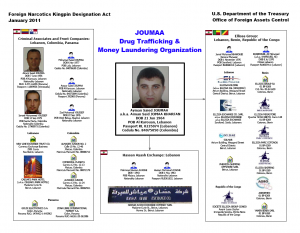In Egypt, Our Military Surrogates Crack Down on Our Civil Society Surrogates
Egypt’s Supreme Council of the Armed Forces raided 17 civil society and human rights groups yesterday, in some cases holding staffers at the NGO offices as the raid proceeded. The raid has the odd effect of pitting the Generals we’ve mentored and funded–to the tune of billions–against civil society experts we’ve also funded, through State Department funding streams.
The orchestrated move by Egypt’s generals, apparently keen to play up to anti-US and nationalist feelings in the country, will be seen as highly provocative in Washington, which underwrites military aid to Egypt to the sum of $1.3bn (£843m) annually.
“We are deeply concerned,” a State Department official told the Guardian.
And I suspect this won’t be the end of the demonizing of civil society NGOs. After all, these NGOs have been involved, for years, in training some of the activists who went on to lead the revolution. Even some of the activists (who may have been state operatives) have accused those with ties to these NGOs of “treason.” The State Department developed an explicit plan to foster reform in Egypt through these NGOs five years ago.
Technical support to legal political parties through IRI and NDI: Having assessed the elections, the institutes now recognize what the parties need. The NDP will likely not participate with other parties in the room, so it may be necessary to develop separate tracks in the program for the ruling party and the opposition. Even with the NDP on board, we can expect blowback by anti-reform elements. The institutes should keep their programs low-key and the USG apprised. Their programs should incorporate the full range of Egypt’s civil rights priorities, such as bringing more women and Christians into the political process. The 2007 Shura elections and the 2008 local council elections–and the development of the legislation promised to reform the later–will be the key medium-term tests. In addition to continued support for international implementers like NDI and IRI, we should also proceed with supporting additional engagement on Egypt by additional international NGOs such as Transparency International, Freedom House, and the American Bar Association.
So SCAF will presumably find plenty of “evidence” that the US supported democratic reform, in part, by supporting these organizations (though State has been pressuring the government directly as well, both under Mubarak and since).
And all that’s before you consider the past role that the International Republican Institute has had in regime change efforts like the attempted 2002 coup against Huge Chavez and the 2004 ouster of Jean-Betrand Aristide.
The point is not that our support of these NGOs is wrong (specific qualms about IRI and, to a lesser degree, Freedom House aside). Rather, it’s that the military leaders we’ve been sponsoring for years cannot distinguish between support for democratization and opposition to their rule. And that, in turn, can easily be spun as an opposition to Egyptian security, particularly given how much the US has turned Islamic terrorism into an all-powerful bogeyman.
It all seems so familiar, given our difficulty getting cooperation from our military surrogates in Pakistan.
Nevertheless, these very vivid examples of how paying to strengthen militarized authoritarians in “allied” countries can backfire didn’t stop us from finalizing a $30 billion deal with Saudi Arabia for F-15s yesterday, the same day of this SCAF raid.




